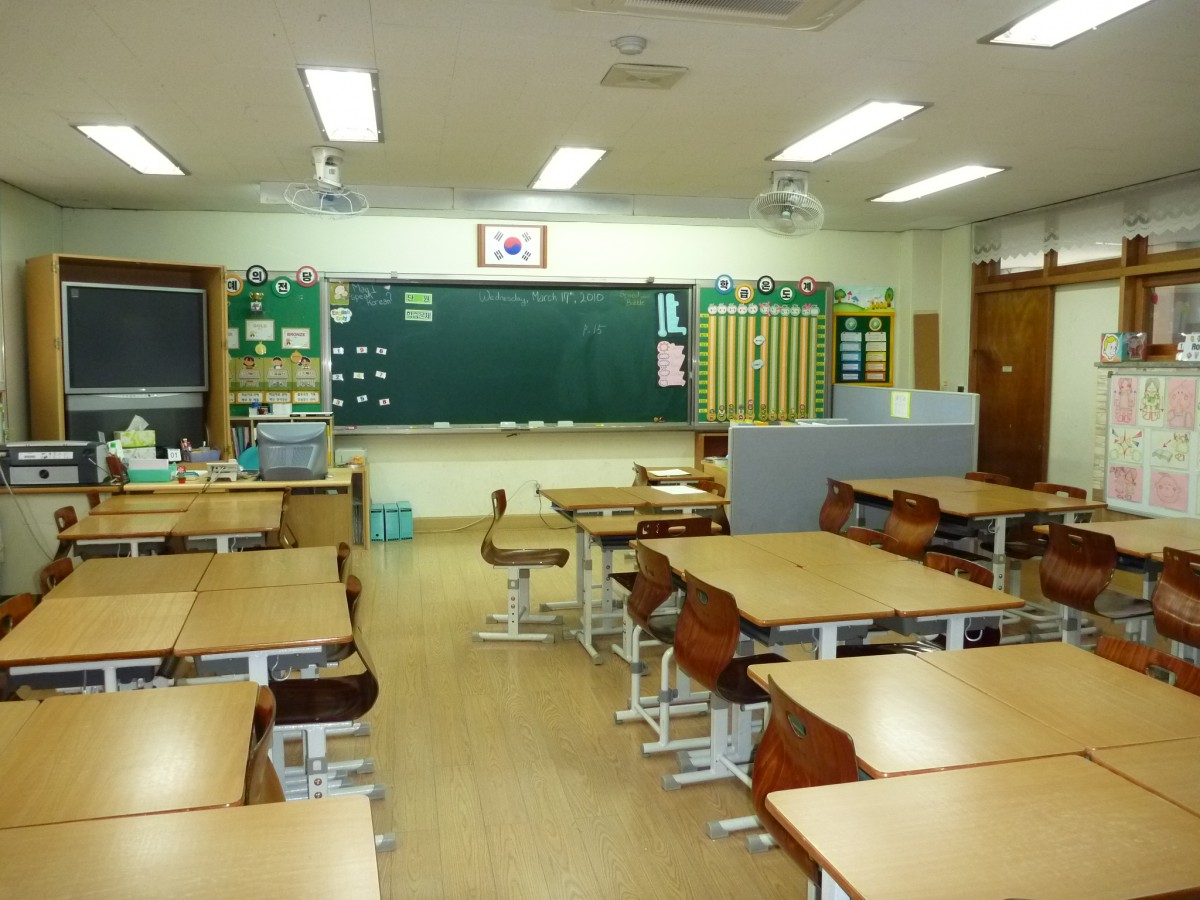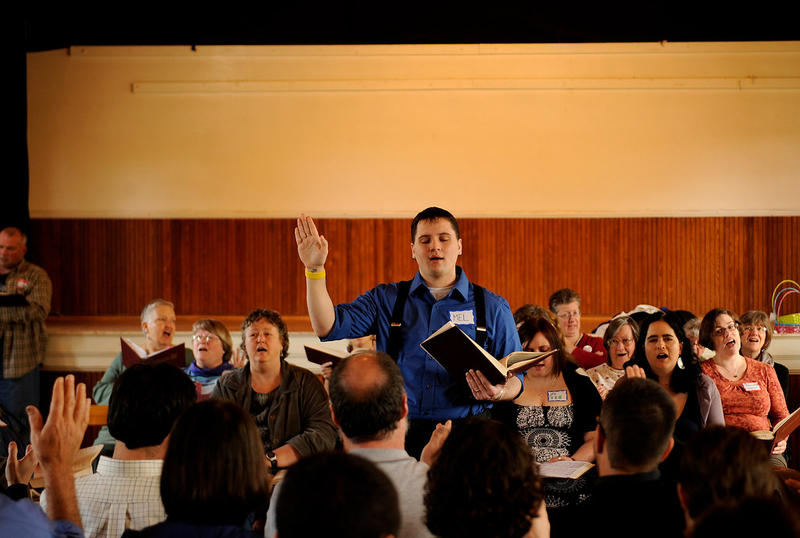The deaths of Ahmaud Arbery, Breonna Taylor and George Floyd have re-ignited racial tension in America this year, but those tensions have existed in American culture for hundreds of years. Demonstrations, marches, petitions and demands for justice have all been a result of the current climate, but creative minds from Appalachia are beginning to use their platform and talents to provide an opportunity to learn through art.
Bryant Young is a 25-year-old software engineer for the mobile game development company Scopely. He is based out of L.A., but is from Maryland and moved around a lot growing up.
His latest project is called “Our America.” Currently in beta testing online, it’s a virtual reality game that puts players in the shoes of a Black father and son and their experiences of subtle – and not-so-subtle – racism throughout the day.
“I think it’s important to understand what other people go through in life. If you think that someone else’s story is invalid because you haven’t gone through it then that’s a huge problem.”
Young spoke with 100 Days in Appalachia’s Maxwell Shavers about “Our America” and the personal experiences that led to its creation.
The interview below has been edited for length and clarity.
Maxwell Shavers: Could you start with an explanation of your game “Our America” for the people who haven’t had a chance to play it themselves.
Bryant Young: So, Our America is a VR (virtual reality) project about going through life as a black person. You start out as a father taking his son to school, and on the way, you experience both subtle and overt racism through different people. And it all culminates at a police stop where you have to make the correct choices to survive.
A lot of these scenarios come from my personal experiences of what I have gone through as a Black man. In the game, the first encounter of racism is when you find out that Malcolm, the son, has been missing the bus because he’s been teased on the bus being called names. You have a kid in the car next to you just crying because he’s been teased so much that he doesn’t even want to go to school. A lot of the emotions you’re going to feel [when playing this game], they’re not joyful happiness. They’re a lot of heavy things to process, but things that a lot of Black people go through every day of their lives.
MS: Would you say that your life and your personal experiences are the main driver for the plot of this game?
BY: That is where I pulled from to create the project, but I wouldn’t say they are directly my experiences. I have been teased for being Black, but they might not have called me the exact same names on the bus. And it might not have been on the way to work where my dad got pulled over, but we have been pulled over and had a cop reach for his gun when he told us to get documents out of the glove box. And then I may not have called my friend and had him call me the n-word, but that is something I have experienced, a white person calling me the n-word.
MS: With the way you formatted the game – for those who haven’t played it – it’s kind of a choice game. Does it have multiple scenarios where you make a decision in the moment that has a butterfly effect on the rest of the game itself, or does it all culminate to the same point?
BY: It’s a branching narrative so at every point you have four choices. There are some points where you only have two or three, but for most of the project you have at least four choices. The way you interact with the environment dictates how the environment then interacts with you. There are certain points, like how you react to Malcolm being teased, that change the story completely. If you’re talking to Malcolm and you’re very callous with it or tell him to go tell the teacher, but he’s already told you that he told the teacher, then you get a totally different phone call [from the school].
Also, in the project there’s another really big decision. Where do you put the toy gun? It’s obviously a toy gun. It’s bright blue. It doesn’t look like an actual gun. It looks like a laser or something like that, right? But people have been killed [by police] for having cell phones, so having a toy gun be such a point of conflict isn’t unrealistic. So, where you put that toy gun dictates who then dies later in the story. So, there’s a lot of branching narrative aspects and the environment is alive, so it also depends on what you do.
MS: Why do you think this game and the story that it tells is necessary for people to experience right now?
BY: I think it’s important to understand what other people go through in life. If you think that someone else’s story is invalid because you haven’t gone through it then that’s a huge problem. I think this allows people to not necessarily go through life as that person, but to have a small hint of what would be experienced on a regular basis.
MS: You are a Black man in America. Has there ever been an incident where you found yourself in the shoes of the driver in this game?
BY: [There was, but] I wasn’t the driver, I was Malcolm. Earlier I mentioned how this happened to me and my father. My dad had just picked up this car in Virginia. It was a 1995 Toyota Camry, my first car. I’m like 16,17, a junior in high school and I’m happy. This is going to be a great day.
On the way back, a cop says we’re going 85 in a 70. Before he even pulled us over, I looked at the speedometer and I was like, “OK we should be alright. I’m not sure why he’s pulling us over, but we should be OK. We weren’t speeding or anything.” So, we pull over and immediately my dad tells me, “Bryant, make sure he can see your hands.”
I’m like, “Oh wow. This is serious. This could go really bad.” The officer walks up and my dad says, “Good afternoon officer.” The officer says, “License and registration.” And my dad says, “The documents are in the glove box. Bryant can get my license and registration in the glove box.”
I go to get the license and registration out the glove box, and out the corner of my eye I see him just spin around, step away from the car and get ready to pull his gun out. At that point, I thought I was going to die.
So that is where the police stop came from, that moment right there. I just wanted to give people an idea of how it feels to have a cop be able to pull his gun out and you can’t do anything about it. You’re just sitting there hoping and praying that you don’t die in that moment.
MS: What are your opinions on how game developers are responding to the Black Lives Matter movement?
BY: I think that games and VR projects like I’m working on are just another medium of art. We often see how Black artists use their medium of choice to show pain, struggle, joy, happiness. Things like Black culture in general are shown through our art a lot of the time. I think this is just another way of people showing their experiences in their art.
There was another 360-video project that I saw set in the 1960s. Basically, you were in the Civil Rights Era and you were going through what it’s like to live as a Black person in that time. That was a project that I admire.
MS: Gaming itself and the controversies around gaming culture, I’m thinking about the whole Gamergate movement, it’s been seen as sexist and sometimes racist. Do you think there’s room for progressive voices in gaming culture?
BY: I think that in any space if you want to see change there’s always room for you, regardless of whether the other people want you there or not. I wouldn’t let someone else stop me from making this project. I know that people are already not going to be happy that I’m making, I just care more about Black people’s lives than other people’s opinions in this matter.
I’ve gotten some, I guess you would call it, ‘hate mail’ on Twitter and Facebook. I guess we’re doing something right if people are getting mad about this project.
People can disagree, but it doesn’t make them right. People can have opinions on any topic, but the fact of the matter is people are dying. And police brutality is more than just someone getting shot and killed. Police brutality is people using their force way too much to oppress people. That’s really what it is.
In my experience, I wasn’t beaten or shot, but do you know how it feels to have someone reach for their gun in front of you? That’s not a good feeling. These are traumatizing things that Black people have to go through on a daily basis.
Maxwell Shavers is a 22-year-old graduate student and freelance photographer/designer from Charleston, West Virginia. He has a Bachelor’s degree in Journalism with a minor in Interactive Design for Media.



